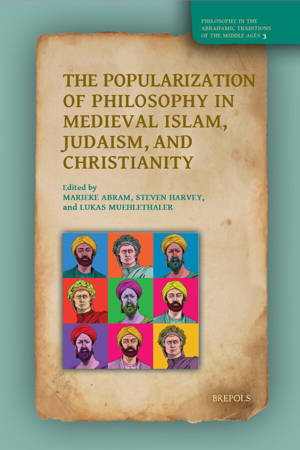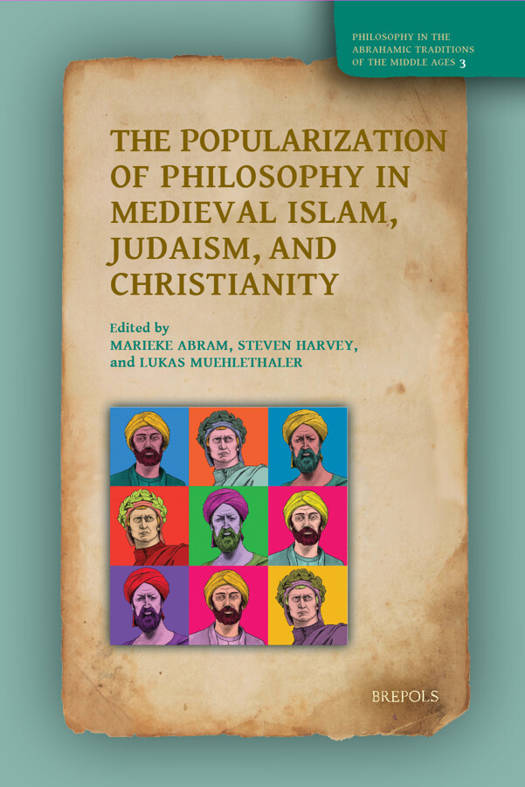
- Afhalen na 1 uur in een winkel met voorraad
- Gratis thuislevering in België vanaf € 30
- Ruim aanbod met 7 miljoen producten
- Afhalen na 1 uur in een winkel met voorraad
- Gratis thuislevering in België vanaf € 30
- Ruim aanbod met 7 miljoen producten
Zoeken
The Popularization of Philosophy in Medieval Islam, Judaism, and Christianity
Marieke Abram
Hardcover | Frans
€ 127,20
+ 254 punten
Omschrijving
This volume explores attempts at the popularization of philosophy and natural science in medieval Islam, Judaism, and Christianity. Medieval philosophers usually wrote their philosophical books for philosophers, so the desire to convey psychological, cosmological, metaphysical, or even physical teachings to the 'vulgus' may seem surprising. This disdain for the multitude and their weak intellectual capabilities is expressed most clearly in the medieval Islamic and Jewish Aristotelian traditions of philosophy, but is certainly found among the Scholastics as well. Yet philosophy was taught to non-philosophers and via a variety of literary genres. Indeed, scholars have argued that philosophy most influenced medieval society through popular forms of transmission. Among the questions this volume addresses are the following: Which philosophers or theologians sought to direct their philosophical writings to the many? For what purposes did they seek to popularize philosophy? Was the goal to teach philosophical truths? Were certain teachings not transmitted? Which teachings were transmitted most often? For whom exactly were these popularized texts written? Were the authors of popularized philosophy always aware they were writing for non-philosophers? How did they go about teaching philosophy to a wide audience? How successful were these attempts? In what ways did popularized philosophy impact upon society? To what extent were the considerations and problems in the medieval popularization of philosophy the same or different in the various religious traditions of philosophy? How philosophical was the popularized philosophy? In addressing these questions, this pioneering volume is the first of its kind to bring together scholars of medieval Islamic, Jewish, and Christian thought to discuss the popularization of philosophy in these three religious traditions of philosophy.
Specificaties
Betrokkenen
- Auteur(s):
- Uitgeverij:
Inhoud
- Aantal bladzijden:
- 465
- Taal:
- Frans
Eigenschappen
- Productcode (EAN):
- 9782503577838
- Verschijningsdatum:
- 1/03/2022
- Uitvoering:
- Hardcover
- Formaat:
- Genaaid
- Afmetingen:
- 163 mm x 239 mm
- Gewicht:
- 716 g

Alleen bij Standaard Boekhandel
+ 254 punten op je klantenkaart van Standaard Boekhandel
Beoordelingen
We publiceren alleen reviews die voldoen aan de voorwaarden voor reviews. Bekijk onze voorwaarden voor reviews.











